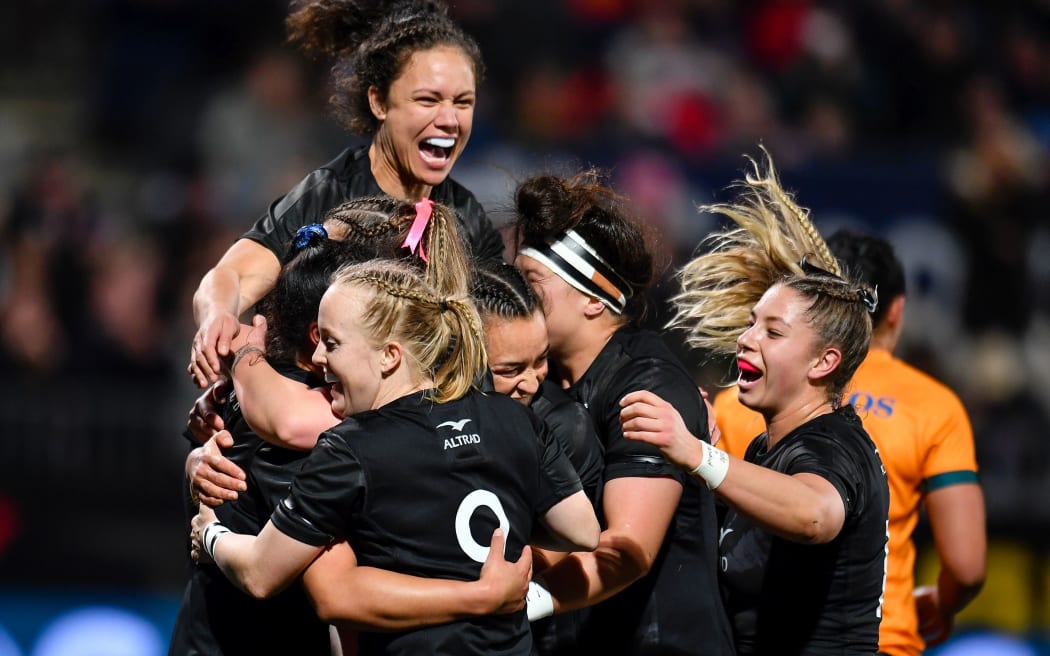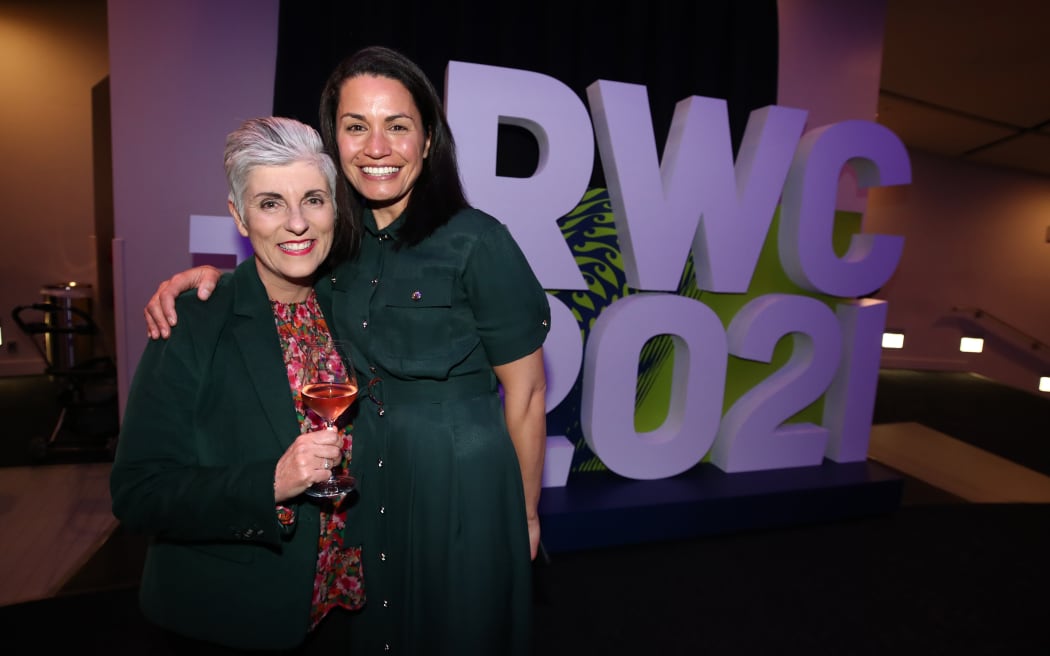New Zealand has produced some brilliant female rugby players in recent times and the game is gaining traction - but it still lags a long way behind the men's game. Hopes are high that next month's Rugby World Cup will bring the level of attention required to speed up the progress of women's rugby.

Photo: John Davidson / www.photosport.nz
If last week's launch of the women's Rugby World Cup is anything to go by it is going to be an exciting event - unpredictable, entertaining, a groundbreaker on and off the field.
And that's exactly what the organisers want me to say. Job done.
The launch function on the spaceship-like rooftop of the Auckland Museum - overlooking the city as the sun went down - was a who's who of women's rugby.
There must have been some, but I didn't see any recognisable faces from New Zealand Rugby (NZR) management. Sir Brian Williams, All Black legend and life member of NZR said he was delighted to be there and told me that his Ponsonby club was a kind of pioneer of women's rugby with teams as far back as the 1980s.
I sat at the table with Black Fern Ruby Tui and a former men's Sevens star. He'd been to plenty of events like this for the men's game but says you can't compare. For a start, former Black Fern Vania Wolfgramm was at the event with her baby, who was being passed around and kissed and cuddled by his "aunties".
The ex-player commented that the equivalent men's functions would be stiff, controlled and controlling.
It was also the auspicious day marking the 50th anniversary of the Māori language petition and te reo Māori was being spoken almost as much as te reo Pākehā.
Newsroom's LockerRoom editor Suzanne McFadden talks to The Detail about the state of women's rugby and the big dreams for the Covid-delayed World Cup 2021, starting on October 8.
"There's a lot hanging on it. It's about everybody working together on this one, the media doing a good job informing people who then want to go to the games, who take their children, who see new role models in women rugby players, that New Zealand Rugby responds and makes rugby a better sport for young women to play. I think we all should feel responsible for this," she says.
"This is a major world tournament with incredible athletes."
At the launch event, called For Our Sisters, guests were repeatedly urged to spread the word about the World Cup and support the Black Ferns and the wahine toa of the other 11 nations competing.
McFadden says the support is crucial for a game that even at international level is lucky to get a few thousand turning up to watch. She says the Black Ferns are not used to the spotlight and are "almost grateful" for the media attention.
"You're never quite sure what they're going to say or talk about when you sit down with them and I love them for that."
She tells The Detail about some of the incredible stories of the 32-member squad, such as Renee Wickliffe and Portia Woodman, who are engaged to be married. Both have suffered a spate of cruel injuries but together have worked and supported each other to get back on the playing field and be selected for the Ferns.

LockerRoom's Suzanne McFadden (left) with track and field athlete Sarah Cowley Ross during the Rugby World Cup Dinner Event at Auckland Museum (Photo by Fiona Goodall/Getty Images for New Zealand Rugby) Photo: Fiona Goodall
Many have got to the top with little financial support from the sport but the World Cup is their chance to show that women’s rugby is just as skilled and exciting as the men's game, she says.
One of the goals of the tournament is to attract record numbers to the opening day at Eden Park on October 8 when fans will be able to watch three matches - six international teams - and be entertained by singer Rita Ora with tickets as cheap as $5 for children and $10 for adults.
But don't expect the same fanfare as England's Lionnesses received when they won the European football championship last month in front of a crowd of 90,000.
"Women's rugby is a little way behind that but its the dream that New Zealanders will turn out in big numbers to watch these games," she says.
There are also high hopes that the World Cup will make a difference at grassroots rugby where female players still do not have access to the same facilities as men at clubs.
"I think we'll see a surge in the numbers of girls and women playing the game and that's a natural reaction that you get after a big event like this but that is where New Zealand Rugby has to capitalise on this and make it easy for girls to play," McFadden says.
"We're still seeing stories about clubrooms around the country with no changing rooms for women, no training fields set aside for women."
She says it is ironic that in the week that the squad was named and the celebration was held, New Zealand Rugby was penalised $280,000 by Sport NZ in its funding allocation for failing its gender quota of 40 percent women on its governing board.
"If you start at the very top of New Zealand Rugby there still aren't enough women on its board, there still aren't enough women leaders, there still aren't enough women coaches.
"New Zealand Rugby still has a lot of work to do."
Find out how to listen and subscribe to The Detail here.
You can also stay up-to-date by liking us on Facebook or following us on Twitter.

Photo:


